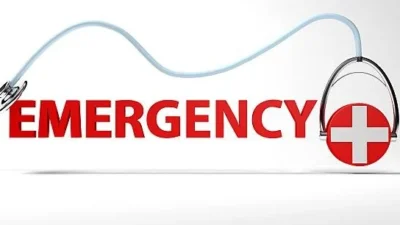In today’s fast-paced world, understanding health terms is crucial, particularly as they can often be the foundation for informed health decisions. Knowing key health terms helps you manage your well-being. Whether you’re visiting a new doctor, reading health articles, or understanding your medical reports, these terms can empower you.
Here, we’ve compiled a list of the top nine essential health terms that everyone should familiarize themselves with. Recognizing these terms can improve your communication with healthcare providers and enhance your overall health literacy.
1. Hypertension
Hypertension, also known as high blood pressure, is a silent yet deadly condition that can lead to severe and even fatal complications if left untreated. It occurs when the force of the blood pulsating through your artery walls is consistently too high, similar to a swollen river overflowing its banks, putting immense pressure on the delicate vessel walls.
Curious about the numbers? A blood pressure reading of 140/90 mmHg or higher is considered hypertensive. Managing hypertension is crucial, as it significantly reduces the risk of heart disease, which is the leading cause of death worldwide, and stroke, which can leave a person debilitated or paralyzed.
2. BMI (Body Mass Index)
BMI is a straightforward formula used to determine whether an individual’s weight is in a healthy range for their height. Although it doesn’t directly measure body fat, it functions as a valuable screening tool to get an overall idea of one’s weight status.
Regularly tracking BMI can help identify potential health risks associated with being overweight or underweight. For instance, a high BMI can increase the risk of obesity-related diseases like diabetes and heart disease, while a low BMI can be a sign of malnutrition or osteoporosis.
Keep in mind that factors such as muscle mass and distribution of fat can impact BMI’s accuracy. For example, a very muscular person may have a high BMI without being overweight, while someone with a lot of belly fat may have a normal BMI despite being at risk of obesity-related health issues.
3. Cholesterol
Cholesterol is a thick, sticky substance that flows through your bloodstream, playing a vital role in building and maintaining healthy cells. Imagine it as a microscopic bricklayer, constructing and repairing the walls of your cells.
However, having high levels of low-density lipoprotein (LDL) cholesterol, often referred to as “bad” cholesterol, can lead to a silent but deadly buildup of plaque in your arteries. This increases the risk of heart disease, heart attacks, and strokes.
4. Diabetes
Diabetes is a persistent and debilitating condition that hinders the body’s ability to effectively regulate blood sugar levels, also known as glucose. Imagine your body as a car that needs fuel to run; glucose is that fuel, and insulin is the key that unlocks the cells to let the glucose in.
In a healthy body, insulin, produced by the pancreas, facilitates the entry of glucose into the cells, providing energy for daily functions. However! In diabetes, this process is disrupted, leading to a buildup of glucose in the bloodstream.
There are two primary types of diabetes: Type 1 and Type 2. In Type 1 diabetes, the pancreas is unable to produce sufficient insulin, making it necessary for patients to rely on external insulin injections to regulate their blood sugar levels.
On the other hand, Type 2 diabetes is characterized by insulin resistance, where the body’s cells become less responsive to insulin, or in some cases, the pancreas doesn’t produce enough insulin. This results in the body’s inability to effectively utilize insulin, leading to high blood sugar levels.
5. Immunization
Immunization is a crucial step in protecting individuals and communities from infectious diseases. By introducing a small, harmless piece of a disease-causing agent to the body, typically through vaccination, immunization helps the body build resistance against future infections.
This process is vital to public health as it works towards achieving herd immunity, a state where a sufficient percentage of the population is immunized, preventing the spread of diseases.
Measles, pertussis, and the flu are just a few examples of diseases that can be prevented through vaccination. In the past, these diseases were prevalent and often deadly, but thanks to immunization efforts, their occurrences have significantly decreased.
6. Inflammation
Inflammation is the body’s automatic defense mechanism, kicking in to repair damaged tissue and eliminate foreign invaders. When we cut ourselves, inflammation is the reason the wound turns red, swells, and feels warm to the touch. This natural response is essential for healing, but when it persists, it can become a ticking time bomb, increasing the risk of serious health problems.
Chronic inflammation has been linked to heart disease, where it can cause arteries to narrow and harden, diabetes, which can result from insulin resistance, and even cancer, where it can fuel tumor growth. By understanding inflammation and how to manage it, we can make informed lifestyle choices that significantly impact our overall well-being.
7. Mental Health
Mental health encompasses emotional, psychological, and social well-being. It’s critical at every stage of life, affecting how we think, feel, and act.
Understanding the terms related to mental health, such as anxiety, depression, and stress can foster meaningful conversations with healthcare providers. Organizations like Health Doc, LLC, offer resources and support for those seeking more information.
8. Preventive Care
Preventive care involves measures taken to prevent diseases rather than treating them. This includes routine screenings, immunizations, and counseling.
By being proactive, individuals can catch potential health issues early and improve outcomes. Regular check-ups with healthcare providers should not be underestimated as they play a key role in maintaining health.
9. Nutrition
Nutrition is the science of food and its relationship to health. It is essential for growth, development, and overall well-being. A balanced diet that includes a variety of nutrients can help prevent chronic diseases and maintain optimal health. Understanding nutrition also helps in making informed choices regarding food and lifestyle.
Bringing It All Together
Understanding these health terms is essential in navigating your health journey. By becoming familiar with hypertension, BMI, cholesterol, diabetes, immunization, inflammation, mental health, preventive care, and nutrition, you enhance your communication with healthcare professionals and make more informed health decisions. The knowledge empowers not only you but also those in your community.
For more helpful tips, check out the rest of our site today.

Lexy Summer is a talented writer with a deep passion for the art of language and storytelling. With a background in editing and content creation, Lexy has honed her skills in crafting clear, engaging, and grammatically flawless writing.



